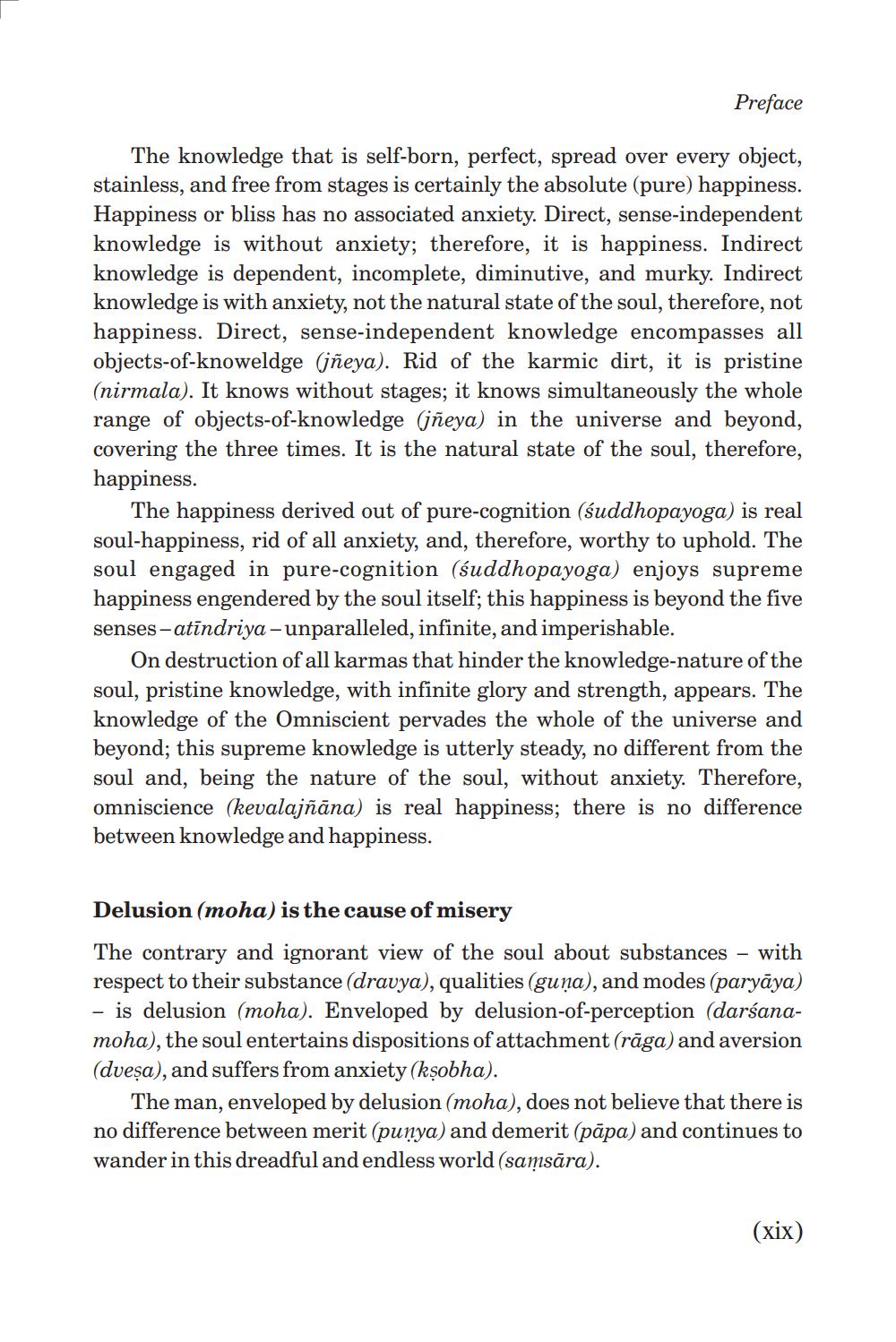________________
Preface
The knowledge that is self-born, perfect, spread over every object, stainless, and free from stages is certainly the absolute (pure) happiness. Happiness or bliss has no associated anxiety. Direct, sense-independent knowledge is without anxiety; therefore, it is happiness. Indirect knowledge is dependent, incomplete, diminutive, and murky. Indirect knowledge is with anxiety, not the natural state of the soul, therefore, not happiness. Direct, sense-independent knowledge encompasses all objects-of-knoweldge (ñeya). Rid of the karmic dirt, it is pristine (nirmala). It knows without stages; it knows simultaneously the whole range of objects-of-knowledge Gñeya) in the universe and beyond, covering the three times. It is the natural state of the soul, therefore, happiness.
The happiness derived out of pure-cognition (suddhopayoga) is real soul-happiness, rid of all anxiety, and, therefore, worthy to uphold. The soul engaged in pure-cognition (suddhopayoga) enjoys supreme happiness engendered by the soul itself; this happiness is beyond the five senses-atīndriya - unparalleled, infinite, and imperishable.
On destruction of all karmas that hinder the knowledge-nature of the soul, pristine knowledge, with infinite glory and strength, appears. The knowledge of the Omniscient pervades the whole of the universe and beyond; this supreme knowledge is utterly steady, no different from the soul and, being the nature of the soul, without anxiety. Therefore, omniscience (kevalajñāna) is real happiness; there is no difference between knowledge and happiness.
Delusion (moha) is the cause of misery The contrary and ignorant view of the soul about substances – with respect to their substance (dravya), qualities (guņa), and modes (paryāya) - is delusion (moha). Enveloped by delusion-of-perception (darśanamoha), the soul entertains dispositions of attachment (rāga) and aversion (dveșa), and suffers from anxiety (kşobha).
The man, enveloped by delusion (moha), does not believe that there is no difference between merit (punya) and demerit (pāpa) and continues to wander in this dreadful and endless world (samsāra).
(xix)




